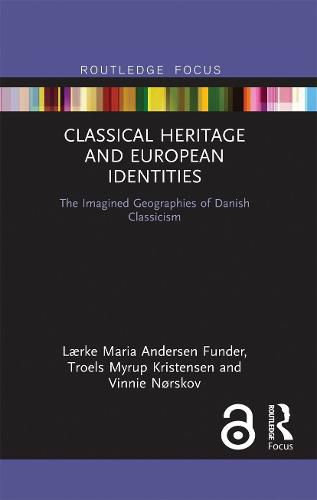Readings Newsletter
Become a Readings Member to make your shopping experience even easier.
Sign in or sign up for free!
You’re not far away from qualifying for FREE standard shipping within Australia
You’ve qualified for FREE standard shipping within Australia
The cart is loading…






Classical Heritage and European Identities examines how the heritages of classical antiquity have been used to construct European identities, and especially the concept of citizenship, in Denmark from the eighteenth century to the present day. It implements a critical historiographical perspective in line with recent work on the reception of classical antiquity that has stressed the dialectic relationship between past, present and future.
Arguing that the continuous employment and appropriation of lassical heritages in the Danish context constitutes an interesting case of an imagined geography that is simultaneously based on both national and European identities, the book shows how Denmark’s imagined geography is naturalized through very distinctive uses of classical heritages within the educational and heritage sectors.
Chapter 1 of this book is freely available as a downloadable Open Access PDF under a Creative Commons Attribution-Non Commercial-No Derivatives 3.0 license. https://s3-us-west-2.amazonaws.com/tandfbis/rt-files/docs/Open+Access+Chapters/9781138317505\_oachapter1.pdf
$9.00 standard shipping within Australia
FREE standard shipping within Australia for orders over $100.00
Express & International shipping calculated at checkout
Classical Heritage and European Identities examines how the heritages of classical antiquity have been used to construct European identities, and especially the concept of citizenship, in Denmark from the eighteenth century to the present day. It implements a critical historiographical perspective in line with recent work on the reception of classical antiquity that has stressed the dialectic relationship between past, present and future.
Arguing that the continuous employment and appropriation of lassical heritages in the Danish context constitutes an interesting case of an imagined geography that is simultaneously based on both national and European identities, the book shows how Denmark’s imagined geography is naturalized through very distinctive uses of classical heritages within the educational and heritage sectors.
Chapter 1 of this book is freely available as a downloadable Open Access PDF under a Creative Commons Attribution-Non Commercial-No Derivatives 3.0 license. https://s3-us-west-2.amazonaws.com/tandfbis/rt-files/docs/Open+Access+Chapters/9781138317505\_oachapter1.pdf